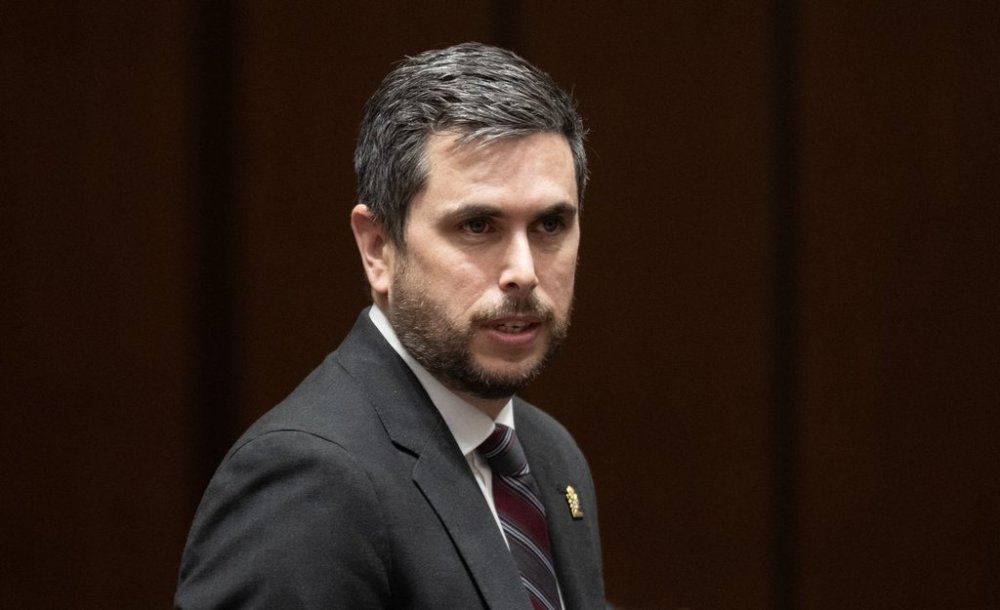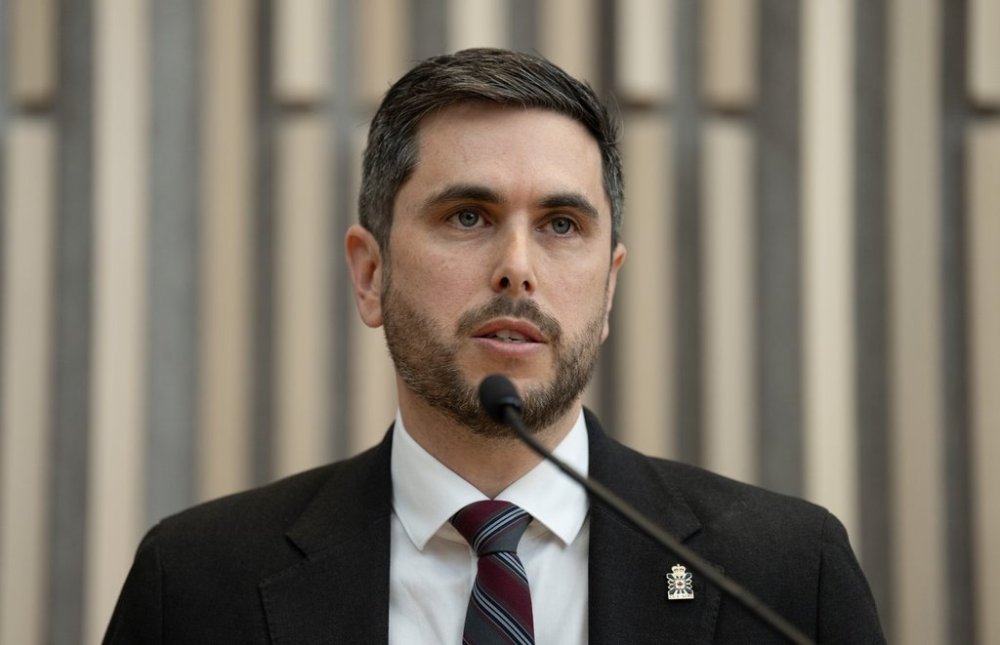China, Russia spying on governments, businesses in Canada’s Arctic: CSIS director
Advertisement
Read this article for free:
or
Already have an account? Log in here »
To continue reading, please subscribe:
Monthly Digital Subscription
$0 for the first 4 weeks*
- Enjoy unlimited reading on winnipegfreepress.com
- Read the E-Edition, our digital replica newspaper
- Access News Break, our award-winning app
- Play interactive puzzles
*No charge for 4 weeks then price increases to the regular rate of $19.00 plus GST every four weeks. Offer available to new and qualified returning subscribers only. Cancel any time.
Monthly Digital Subscription
$4.75/week*
- Enjoy unlimited reading on winnipegfreepress.com
- Read the E-Edition, our digital replica newspaper
- Access News Break, our award-winning app
- Play interactive puzzles
*Billed as $19 plus GST every four weeks. Cancel any time.
To continue reading, please subscribe:
Add Free Press access to your Brandon Sun subscription for only an additional
$1 for the first 4 weeks*
*Your next subscription payment will increase by $1.00 and you will be charged $16.99 plus GST for four weeks. After four weeks, your payment will increase to $23.99 plus GST every four weeks.
Read unlimited articles for free today:
or
Already have an account? Log in here »
OTTAWA – Spies from China and Russia have a significant interest in Canada’s Arctic and those developing its potential, Canadian Security Intelligence Service director Dan Rogers warns.
In a speech Thursday on threats facing Canada, Rogers said it’s no surprise CSIS has seen foreign intelligence collection efforts in the region targeting both governments and the private sector.
“Non-Arctic states, including the People’s Republic of China, seek to gain a strategic and economic foothold in the region,” Rogers said. “Russia, an Arctic state with a significant military presence in the region, remains unpredictable and aggressive.”

Rogers said CSIS is engaging with Indigenous, Arctic and northern partners across Canada to bring them up to speed on what the spy service has seen and to learn from their insights.
For example, he said, CSIS has provided Inuit and territorial governments with information to help them take national security into account as they make decisions about business and research opportunities with foreign companies and investors.
Rogers, who became CSIS director just over a year ago, described the current threats to Canada from espionage, foreign interference, transnational repression and violent extremism at a time of heightened tensions with the United States, a key national security partner.
He told reporters after his speech that Canada’s security relationship with the United States remains strong, despite changes in Washington’s priorities.
“We benefit greatly from intelligence and security sharing by the United States, and we contribute back,” Rogers said. “So I think it’s still strong.”
Asked whether Canada is sharing intelligence with the U.S. in support of American military strikes on alleged drug traffickers at sea, Rogers said it is typical for CSIS intelligence to be shared on a case-by-case basis, taking into account Canadian law and human rights concerns.
In his wide-ranging address, Rogers noted Canadians’ data increasingly resides in the hands of foreign governments and corporations in their jurisdictions. This arms states which may choose to act against Canada’s interests with new ways to weaponize data and information, he said.
Intelligence services have long focused their espionage efforts on government and military secrets, seeking insights into technology and economic strategies, Rogers said.
“Today, while the goals are similar, the targets are more varied. Some of the world’s most advanced and emergent technology is now held by private sector and academic institutions,” he said.
“National governments are still targeted for sensitive intelligence, military and economic secrets but so too are corporations and other levels of government whose data, technological innovations, influence and access to resources can shift the balance of advantage.”
Chinese spies have tried to recruit Canadians who have access to government plans, information and military expertise through social media and online job platforms, Rogers said. CSIS and its partners have found ways to identify and counter those efforts over the last year, he added.
The spy service also has worked with partners to identify Russian intelligence officers and deny them permission to travel to Canada, and to counter Moscow’s efforts to conduct sabotage using commercial courier companies and the transportation industry, he said.
CSIS also has informed several Canadian companies that Europe-based front companies seeking to acquire their goods were in fact connected to Russian agents, Rogers said.

“These companies not only took immediate measures to deny the Russians their success but also expressed gratitude and interest in working together to counter any future Russian activity,” he said.
Rogers denounced transnational repression carried out by foreign regimes through surveillance, the spread of false and discrediting information, extortion and threats to safety.
He said CSIS recently shifted its operations to counter the efforts of Iranian intelligence services and their proxies to target individuals they perceive as threats to the regime.
“In more than one case, this involved detecting, investigating and disrupting potentially lethal threats against individuals in Canada,” he said.
Rogers warned that eroding social cohesion, rising political polarization and significant global events provide fertile ground for radicalization, and many who turn to violence become radicalized exclusively through online activities — often without direction from others.
“Worryingly, nearly one in ten terrorism investigations at CSIS now includes at least one subject of investigation under the age of 18,” he said.
Countering violent extremism has come to account for less than half of CSIS’s work, but it will remain a significant focus, Rogers added.
This report by The Canadian Press was first published Nov. 13, 2025.
— With files from Catherine Morrison

